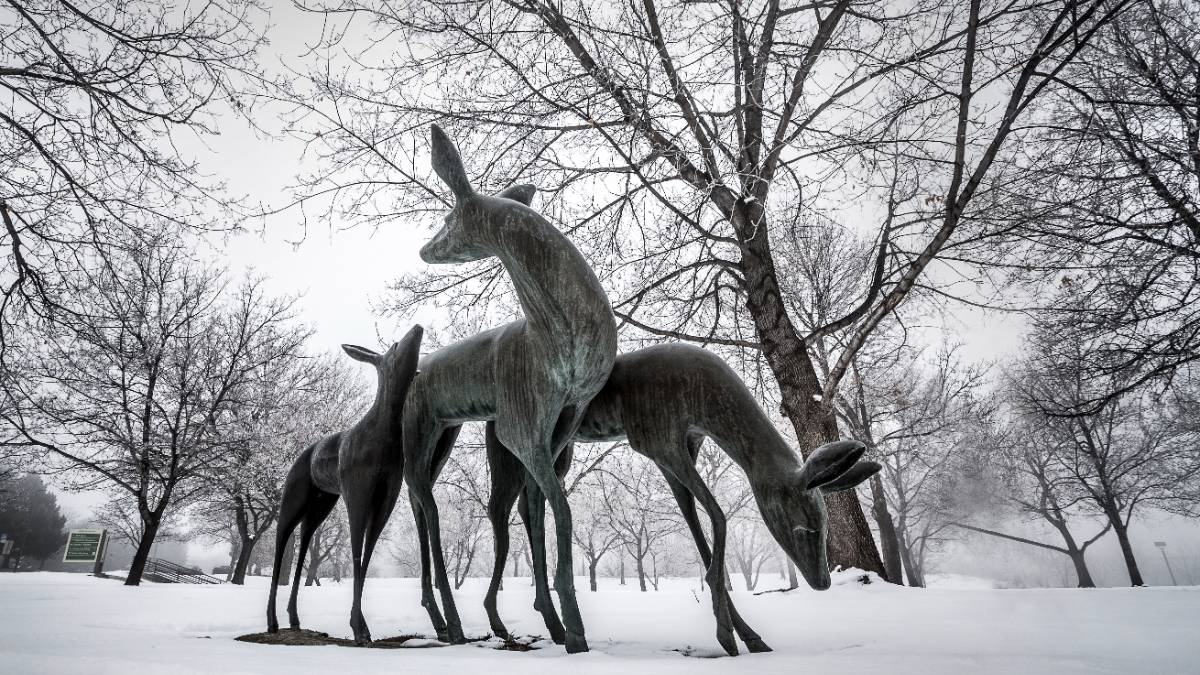

Sustainability at UVU Nursing Department
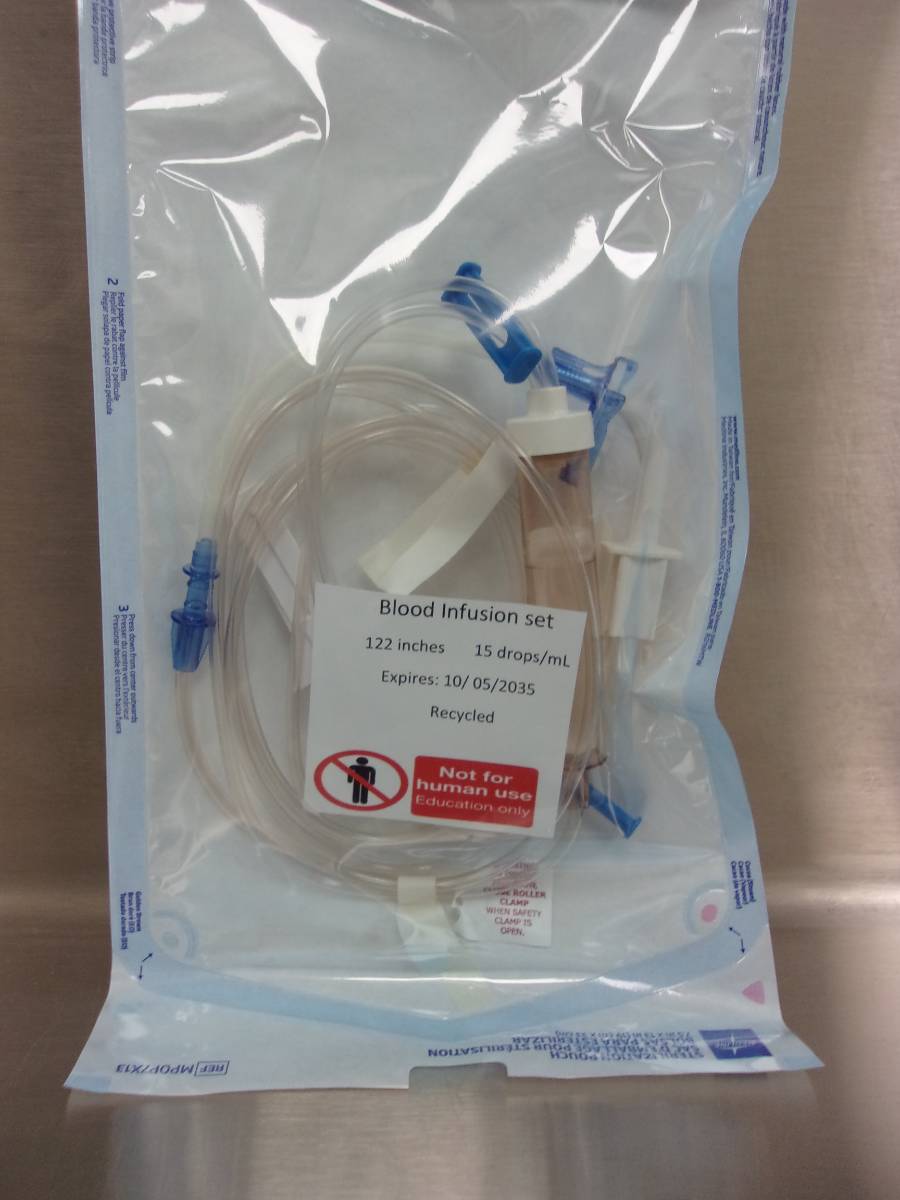
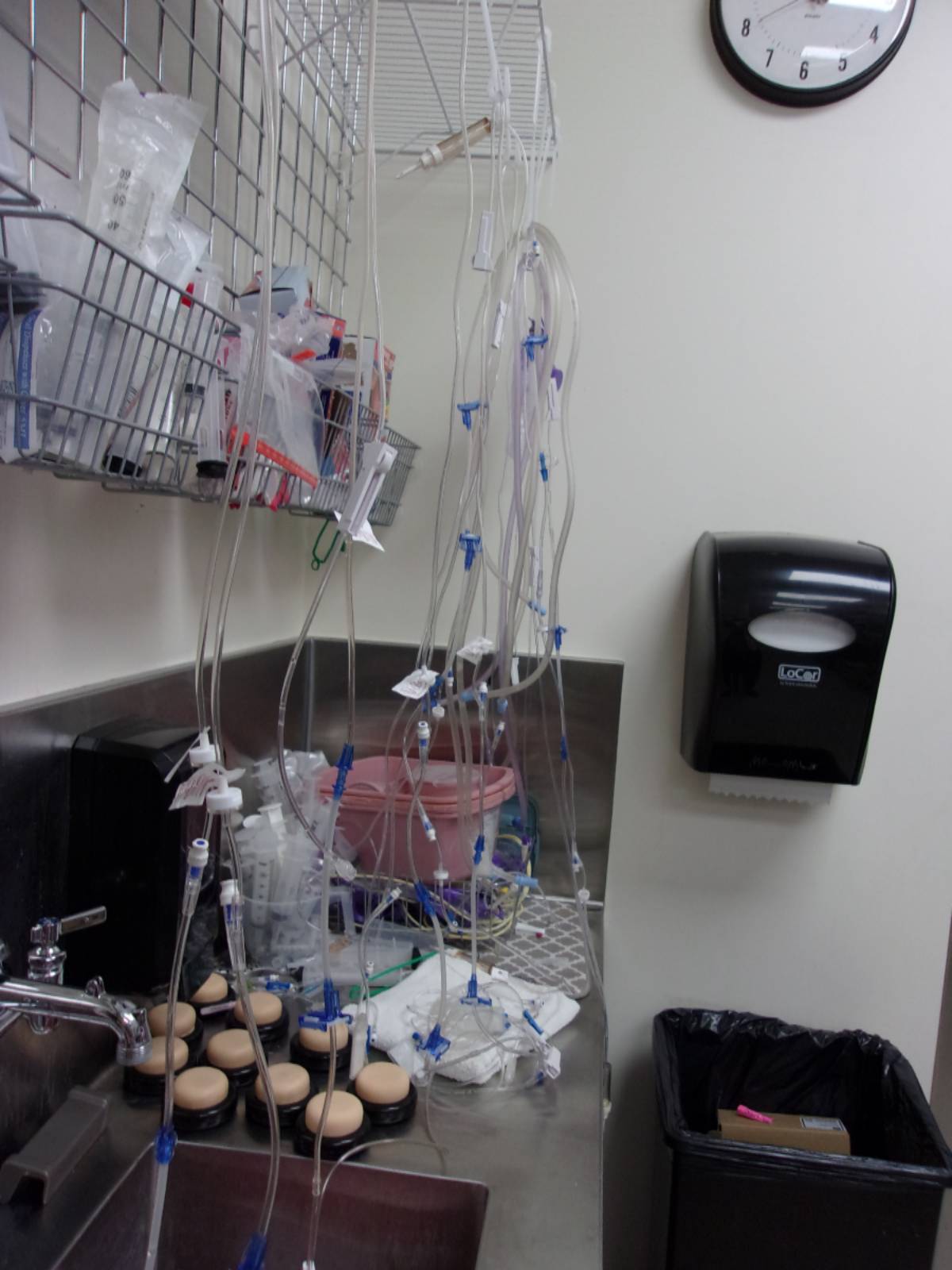
The Utah Valley University Nursing Department is reducing their environmental footprint and costs by recycling supplies used in their simulation and clinical skills labs. The Nursing Learning and Simulation Center provides a setting where students can practice critical nursing skills in a simulated clinical environment, which prepares them for live clinical situations. To ensure optimal training, which is easily applied to real-life nursing care, authentic medical equipment and supplies are used. However, one limitation for using actual medical supplies is the cost inherent with purchasing them. Unfortunately, this cost can limit training opportunities for students.
Recently, the idea was conceived to recycle and then reuse some of these supplies. Phillip Kleinman, Nursing Learning and Simulation Center Director, visualized a process where recyclable equipment could be cleaned, re-packaged and then reused to save money while providing more lab experiences for the students. This is possible, because unlike real life situations where medical supplies are required to be sterile before use, supplies used in the skills training and simulations are not being used on real patients; therefore, there is no requirement they are sterile. This makes the skills and simulation labs optimal environments for recycling medical supplies.
In Fall Semester 2020, Kleinman and the nursing clinical instructors began the recycling program by saving urinary catheterization kits and central line dressing kits after student use. Other supplies, such as IV tubing and IV extension sets, were added to the recycling program in Spring 2021.
The process of preparing used supplies is not complicated but can be time consuming when done for large numbers of supplies. The supplies are cleaned, drained of any fluid, flushed with Isopropyl alcohol, and then air-dried to eliminate bacterial growth. When dry, the supplies are repackaged in medical autoclave bags and re-used as long as the item is still functional. Some hard plastic items can be used repeatedly, while others such as IV tubing are functional for three or more uses. Each additional use accrues direct financial benefits. A student lab employee has been crucial to salvaging and preparing the equipment for re-use.
Reusing supplies has resulted in a cost savings of approximately $7400 per semester for the UVU Nursing Department, as well as facilitating a reduction in plastic waste from 235 to 72 pounds. This cost savings has allowed the department to purchase more educational supplies and provided funds for maintenance of medical equipment like IV pumps. The faculty and nursing administration have labeled this recycling project a success. Not only has recycling benefited the local Utah Valley environment and extended the department budget, most importantly, it has resulted in more clinical skills training opportunities for UVU nursing students that should translate into increased competence and confidence in real-life clinical situations for them.
This article was written by: Francine Jensen, PhD, RN, ASN Program Coordinator; Phillip Kleinman, MSN, RN, Director of Nursing Lab and Simulation Center; Lisa Shelton, BSN Student, RN
February 2nd: World Wetlands Day
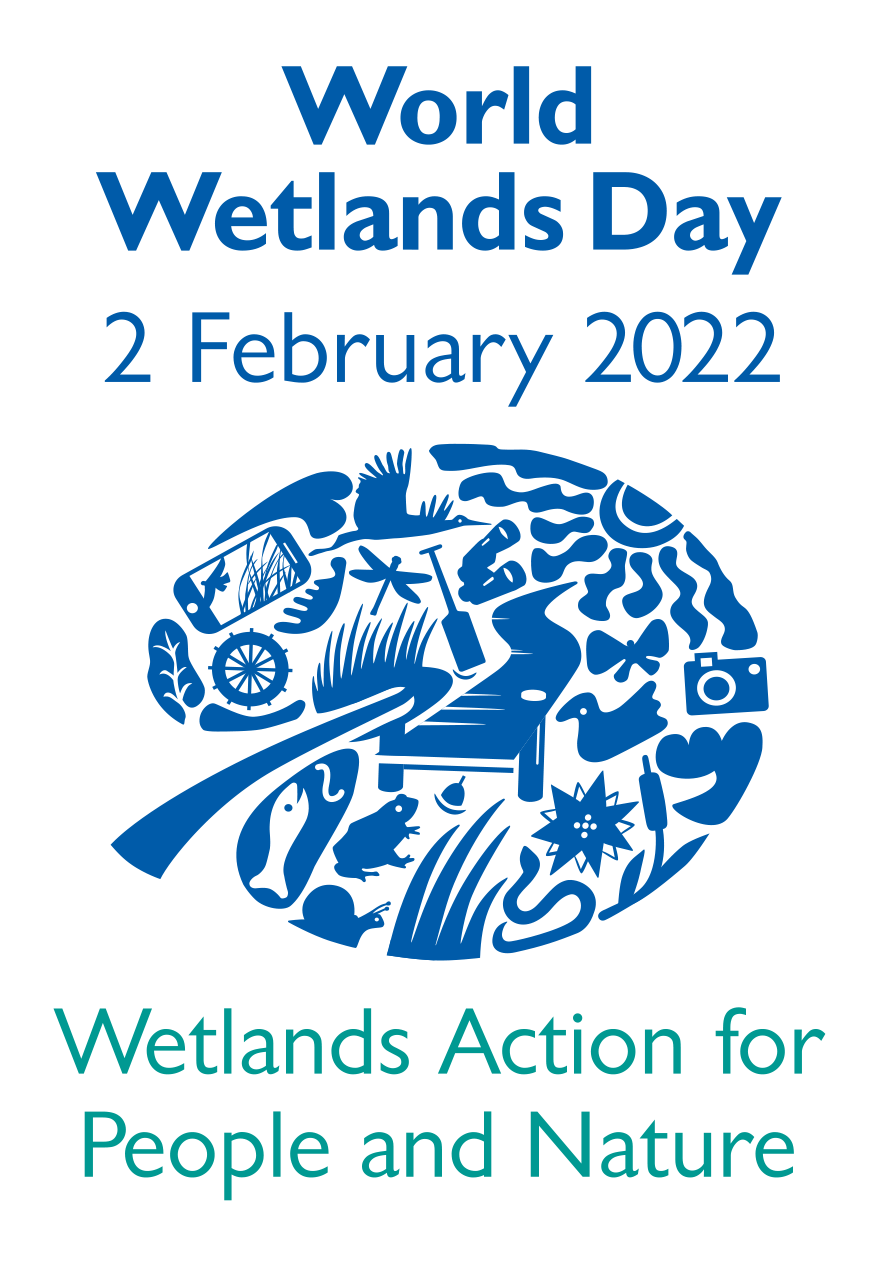
This year the groundhog will have to start sharing his holiday, as the United Nations officially recognized February 2nd as World Wetlands Day. First celebrated in 1997, World Wetlands Day was created to remind people of the important function wetlands play on our planet, and to bring attention to the rapid loss of these ecosystems.
A wetland is typically defined as an area that is regularly flooded, such as marshes, swamps, and the floodplains of rivers. And while you might not think of wetlands when you think of Utah—the second driest state in the US—they are actually quite widespread in the state. Most of Utah's wetlands are found around the Great Salt Lake, ranging from marshes to salt flats, with the vegetated wetlands providing vital habitat for migrating birds. Other Utah wetlands include the shores of Utah Lake, the Hot Springs near Hanksville UT, and Weeping Rock in Zion National Park.
The theme of 2022 World Wetlands Day is "Wetlands Action for People and Nature", encouraging participants to help protect wetlands. Wetlands are a particularly vulnerable ecosystem, being destroyed three times faster than the world's forests. To celebrate World Wetlands day this year spend some time learning about wetlands, or even visit a wetland to enjoy these unique places yourself. Find wetland recreation spots in Utah here. You can also support groups/initiatives that are fighting for Utah's wetlands, such as Save Our Great Salt Lake or Conserve Utah Valley.
Whether through education, recreation, or action, remember wetlands on February 2nd!
Get involved in 2022 Utah Legislature General Session
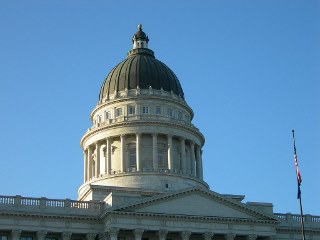
On January 18th the General Session of the 64th Utah Legislature began; where state lawmakers discuss, change, and pass state laws. Over the course of the session, the legislature is scheduled to review 336 bills until it ends on March 4th. These proceedings can be watched on the Utah State Legislature website, and you can also sign up to track bills that are important to you.
Most people are somewhat aware of National politics, such as what the president is doing or the things Congress is arguing about, but people are rarely in the know when it comes to what's happening locally. While the larger scale politics often seem more pressing, actual change tends to happen on the smaller level. According to the US Constitution, every power not given explicitly to the Federal Government is under the jurisdiction of the States and Local governments. This has lead to cities being responsible for things such as critical infrastructure, i.e. water systems and roads, and states being in charge of things like holding elections and regulating commerce within the state. The responsibilities of city and state governments often have more impact on the day-to-day life of American citizens, so how do we get involved on these levels?
One of the most basic things to do is find out who your elected officials are, which you can do by plugging your address into this website. Then you can find their contact information and inform them what issues are important to you as one of their constituents. However, without mentioning specific bills that you are in favor of or are against, your concerns might not be realized. But combing through the hundreds of proposed bills can be difficult, so it can be very helpful to follow groups that align with your beliefs. Organizations such as Utah Clean Energy and the Utah Division of Multicultural Affairs track bills related to their causes, and HEAL Utah even helps you to effectively lobby directly to members of Utah's congress.
This year look into the General Session, stay informed, and let your representatives know what you care about.
Events
- Fridays For Future Utah - School Strike for Climate. Every Friday, 3 PM - 5 PM, Utah State Capitol.
- UVU Wellness - Healthy Cooking Demonstration: Nutritious Pancakes. Feb 2, 5:30 PM, SLWC Demo Kitchen.
- Utah Recycling Alliance - State of Recycling Town Hall. Feb 8, 4 PM - 5:30 PM, Virtual.
- Heal Utah - Womxn's Day on the Hill. Feb 15, 10 AM - 1 PM, Zoom.
- Utah Recycling Alliance - Trash Talk Series: Planning to Prevent Food Waste. Feb 15, 4 PM - 5 PM, Virtual.
- USU Extension - Cultivating Healthy Plants: Cover Crop Management Practices to Reduce Weed Pressure. Feb 17, 12 PM - 1 PM, Virtual.
- USU Extension - Backyard Gardening Workshop at Thanksgiving Point. Feb 19, 9 AM - 12 PM, Ashton Gardens at Thanksgiving Point.
- UVU Office for Global Engagement - Why It Matters Conference Update. Feb 22, 3 PM - 4 PM, SC 206b.
- USU Extension - Finding Healing Through Collaborative Restoration. Feb 22, 7 PM - 8:30 PM, Swaner EcoCenter.
Job Opportunities
- Environmental, Health and Sustainability Intern. Chromalox. Ogden, UT.
- 2022 Field Logistics Technician. Utah Conservation Corps. Logan, Cedar City, or Moab, UT.
- 2022 Field Crew Leader. Utah Conservation Corps. Logan, Cedar City, or Moab, UT.
- 2022 Field Crew Member. Utah Conservation Corps. Logan, Cedar City, or Moab, UT.
- Utah Conservation Corp Member. Utah Clean Energy. Salt Lake City, UT.
- 2022 Internships. Capitol Reef Field Station. Capitol Reef National Park. (closes February 28)
- Sustainability Outreach Coordinator - Part-Time. Salt Lake City Corporation. Salt Lake City, UT. (closes February 13)
- Waste and Recycling Education Specialist I. Salt Lake City Corporation. Salt Lake City, UT.
- Natural Resources Technician - Seasonal. Salt Lake City Corporation. Salt Lake City, UT.
- Watershed Worker - Seasonal. Salt Lake City Corporation. Salt Lake City, UT.
- Summer 2022 Dr. Norman Weissman Internship for the Preservation of Wild & Scenic Utah. Southern Utah Wilderness Alliance. Salt Lake City, UT.
- Latino Community Grassroots Organizing Internship. Southern Utah Wilderness Alliance. Salt Lake City, UT.
- Development Intern. HEAL Utah. Salt Lake City, UT.
- Corporate Sustainability Intern. USANA Health Sciences. West Valley City, UT.
- Canyon Country Youth Corps. Canyon Country Discovery Center. Monticello, UT.
Academic Opportunities
- Doyle W. Stephens Scholarship for Great Salt Lake Research.
- Student Poster Contest: Intermountain Sustainability Summit. (closes February 15)
- WISA Design Competition: Designing the Flight School of the Future
- Call for Presenters: International Institute for Sustainable Laboratories Conference.
- Call for Papers: International Social Innovation Research Conference.
- Call for Undergraduate Research Abstracts: Scholarship & Social Justice Research Conference. (closes February 11)
- The Intentional Endowment Network: Student Corporate Engagement Competition
- ASLE Book Awards in Ecocriticism & Environmental Creative Writing.
- Call for Papers: Fostering a Culture of Sustainability through Outdoor Recreation and Education.
- Call for Papers: Justice and Equity Approaches to College and University Student Food (In)Security. (closes February 28)
- US EPA: Crushing Pollution Video Challenge. (closes March 1)
- US EPA: Environmental Justice Video Challenge.
- US Green Chamber of Commerce University Climate Ambassadors Program.

